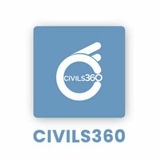Hate Speech
👉The growing incidence of hate speeches, especially those targeting minorities, in combination with the judicial ambiguity has provided an opportunity to chart legislative reforms.
👉Hate speech is neither defined in the Indian legal framework nor can it be easily reduced to a standard definition due to the myriad forms it can take.
👉The Supreme Court, in Pravasi Bhalai Sangathan v. Union of India (2014), described hate speech as “an effort to marginalise individuals based on their membership in a group” and one that “seeks to delegitimize group members in the eyes of the majority, reducing their social standing and acceptance within society.”
👉The Indian Penal Code illegally uses speeches that are intended to promote enmity or prejudice the maintenance of harmony between different classes.
👉Specifically, sections of the IPC, such as 153A, which penalises promotion of enmity between different groups.
👉153B, which punishes imputations, assertions prejudicial to national integration.
👉505, which punishes rumours and news intended to promote communal enmity.
👉295A, which criminalises insults to the religious beliefs of a class by words with deliberate or malicious intention.
👉Amish Devgan v. Union of India (2020), the Supreme Court held that “hate speech has no redeeming or legitimate purpose other than hatred towards a particular group”.
#CurrentAffairs2022 #importantTopics #prelims2022 #Discrimination #Polity #Minorities #UPSC
👉Join @civils360
👉For Daily Test👇
👉Download App:
Android:https://bit.ly/3s1S5DU
ios:https://apple.co/3G51zFb
👉The growing incidence of hate speeches, especially those targeting minorities, in combination with the judicial ambiguity has provided an opportunity to chart legislative reforms.
👉Hate speech is neither defined in the Indian legal framework nor can it be easily reduced to a standard definition due to the myriad forms it can take.
👉The Supreme Court, in Pravasi Bhalai Sangathan v. Union of India (2014), described hate speech as “an effort to marginalise individuals based on their membership in a group” and one that “seeks to delegitimize group members in the eyes of the majority, reducing their social standing and acceptance within society.”
👉The Indian Penal Code illegally uses speeches that are intended to promote enmity or prejudice the maintenance of harmony between different classes.
👉Specifically, sections of the IPC, such as 153A, which penalises promotion of enmity between different groups.
👉153B, which punishes imputations, assertions prejudicial to national integration.
👉505, which punishes rumours and news intended to promote communal enmity.
👉295A, which criminalises insults to the religious beliefs of a class by words with deliberate or malicious intention.
👉Amish Devgan v. Union of India (2020), the Supreme Court held that “hate speech has no redeeming or legitimate purpose other than hatred towards a particular group”.
#CurrentAffairs2022 #importantTopics #prelims2022 #Discrimination #Polity #Minorities #UPSC
👉Join @civils360
👉For Daily Test👇
👉Download App:
Android:https://bit.ly/3s1S5DU
ios:https://apple.co/3G51zFb
Google Play
KnotBook - Learning App for UP - Apps on Google Play
KnotBook App by Civils360 IAS - Your best companion for UPSC IAS, CAPF & EPFO
